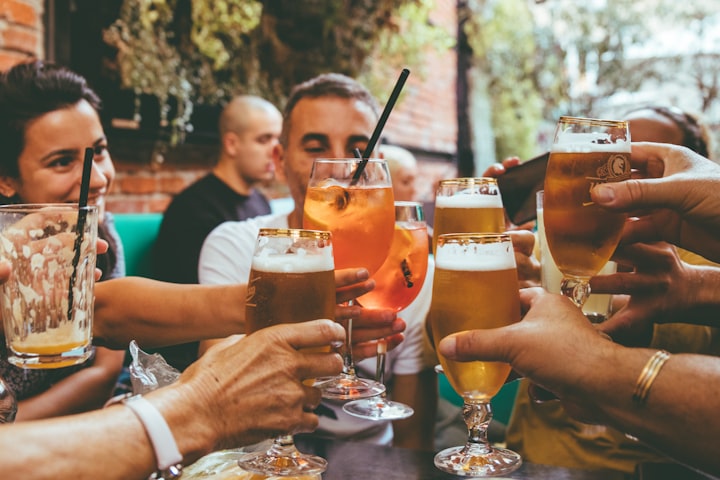
Since the early days of the pandemic, many have struggled to get by. Some are stuck working from home while having to teach their kids simultaneously. Others are stuck on the front lines, risking their lives every day to serve others—all while more than half a million deaths have occurred nationwide. Everything seemed as though it was looking up at the beginning of summer: cities, bars, and restaurants were reopening. It felt as if that freedom we had often taken for granted was finally coming back to us. But was it really coming back? And how long would it last?
The panic of lockdown in March caused alcohol sales to come to staggering numbers. It seemed as though it was just a phase. But in August of 2021 with an average of 700 deaths per day, the overconsumption of alcohol only continued to increase—something none of us knew how to deal with, especially during a pandemic.
The Shocking Reality of Drinking Consequences
In 2020, 750,000 cancer cases were linked to alcohol consumption, showing a large increase from previous years. When alcohol acts as an irritant in the body (for example, in the lining of the mouth, throat, or stomach), the body tries to heal itself. This can result in abnormalities, thus causing cancer. Men are 75% more likely to develop cancer in their esophagus or liver, while women are prone to breast cancer. According to the 2019 U.S. data, women in their late teens to early twenties are now drinking just as much or even more than men—and it's causing them to suffer the consequences, too.
Using Alcohol to Cope with Stress and Anxiety
It’s no secret that those who drink to cope are more likely to severely abuse alcohol consumption down the road. Since the pandemic, coping with alcohol has been especially popular among parents of young children as they try to juggle even more duties than before. Research suggests that although both groups use booze as a coping strategy, women are more likely to use alcohol as a coping mechanism than men are. One study looked at alcohol's effects on college students early in the pandemic and found an increase in alcohol use among those who reported higher stress and anxiety levels. In addition, several studies found women were more likely to report drinking higher alcohol levels during the pandemic, especially if they experienced increased stress.
Mental Health Consequences
Using alcohol as a coping mechanism is said to help with daily stressors, trauma, and social anxiety. However, it is now turning into a long-term effect of COVID. Despite the calming properties over time, booze increases the effects of depression and anxiety. Researchers from NYU surveyed residents from all 50 states from March to April of last year. Out of the 5,850 respondents, 29% of them have increased drinking since the beginning of the pandemic. Those with depression are 64% or those with anxiety are 41% more likely to increase their amount of drinking.
While it’s perfectly normal (and even healthy) to moderately drink, it’s important to remember that we can’t use alcohol as a coping strategy. It may help us fall asleep or relax our nerves, but drinking is a temporary fix. We might find ourselves taking a shot before every work meeting soon enough. As consumers, some things to consider are the alcohol restrictions in each state and how accessible it is to us. It has become easier to have groceries delivered right to our home, as are freshly made cocktails from restaurants and bars. This newfound accessibility can be just as addictive as our Amazon deliveries that we get every other day.





Comments
There are no comments for this story
Be the first to respond and start the conversation.